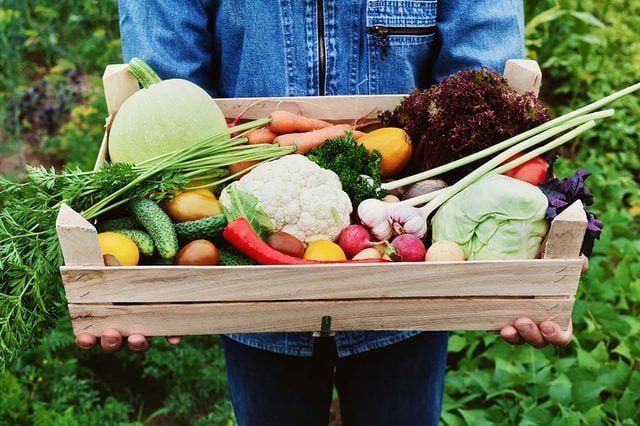
Faux fruits and veggies
Farmers markets are hugely popular. So much so that the prices can be a bit steep—here are some secrets to getting deals at farmers’ markets. The setting is ideal: You can get a bit of fresh air, find fresh, local produce, and meet the people who actually grew the food. However, there’s a little trouble in paradise: An NBC Los Angeles exposé found some of the “farms” where the produce was sourced were actually empty dirt plots or weed-covered patches. Some of the produce came from a wholesale warehouse. And when the station tested pesticide-free strawberries, sure enough, there were traces of pesticides.
How do you know if you can trust in your farmers market? Rest assured that most of the time, the markets are above board. “Trust is the key to a market’s success and why the farmers market field has dedicated so much time and energy to advocating for transparency,” says the Farmers Market Coalition (FMC). “Honest farmers lose when they have to compete with vendors who are cutting corners and shoppers lose when they are misled. Successful farmers markets make sure that doesn’t happen.”
Feel good about your next farmers’ market experience by watching for these problem tip-offs.
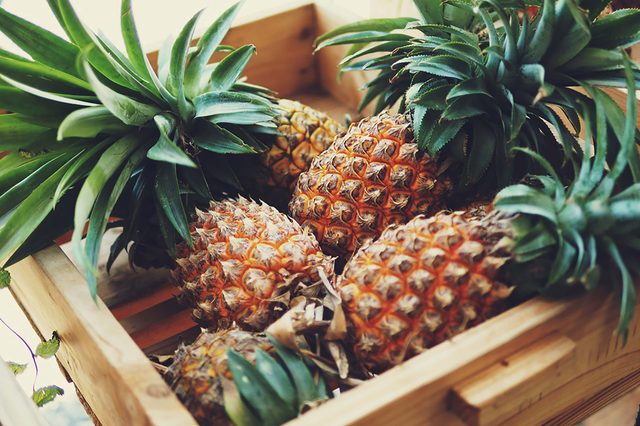
The produce isn’t in season
“If you live in a snow state and are seeing bananas and pineapples in December, you can be confident that that farmer was unable to produce that product themselves,” says the FMC.
The FMC notes that many state departments of agriculture and other organizations publish “produce availability guides.” Such guides allow consumers to track which produce is in season in their region. Here’s a guide to seasonal produce you can check out.
Sticking a guide on your refrigerator is a great way to buy the right produce at the ripest time. And it will help remember what’s not in season.
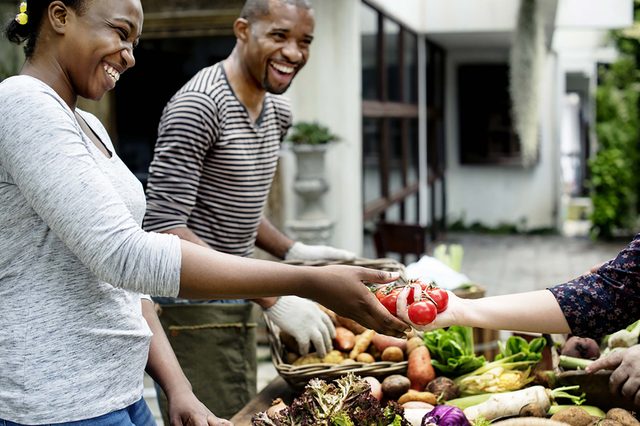
The seller can’t answer basic questions about production
Unlike most grocery stores, a farmers’ market tends to be social: You can connect with the farmers who grow your food. When you chat with the guys and gals behind the peach baskets, if they can’t answer basic questions about how they grow the food, the farm’s location, or their planting cycle, you may be dealing with a fraud. To get the most out of your trip, check out the 13 secrets to know about farmers’ markets.
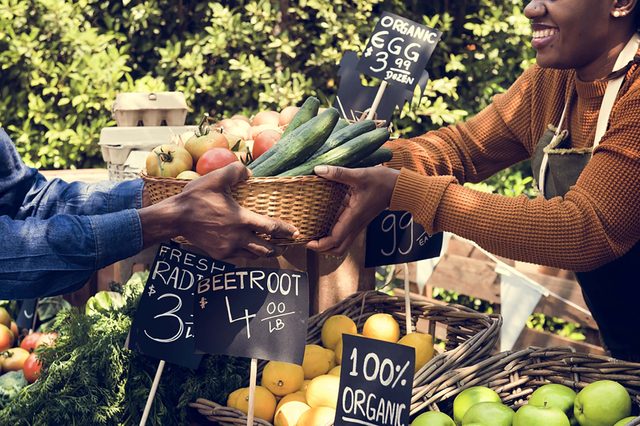
It’s not a producer-only market
The majority of farmers markets have an information booth. Here, you can find out if you are at a producer-only market.
“Most farmers markets have staff or volunteers who help the market run smoothly and serve as ambassadors for the market,” explains the FMC.
The FMC notes that markets usually have clear and enforced vendor-only requirements, and the staff are happy to educate customers about the requirements, along with local regulations, seasonality, and their farmers. “Some go so far as to conduct audits at farms to ensure that what you see on a farmer’s stand was grown by those farmers.”
If it’s not a producer-only market, the sellers can have produce purchased at wholesale markets. That can mean it’s not local.
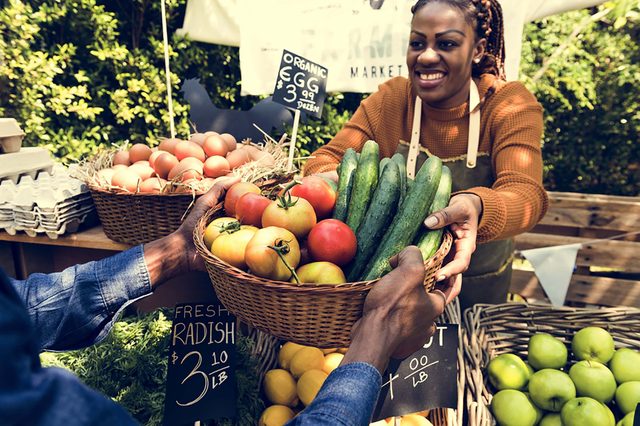
Farmers are using signs to trick you into thinking their produce is organic
Not all produce at the farmers market is organic, but some farmers will display signs that will make you think so. Unless the farmer can point to clear organic certification, the food may not be organic. And don’t be fooled by signs like no-spray, chemical-free, natural, or grown using organic methods: They don’t mean much.
Again, talk to the farmer selling the food. If that person can’t point to a government-issued organic certification, shop elsewhere.
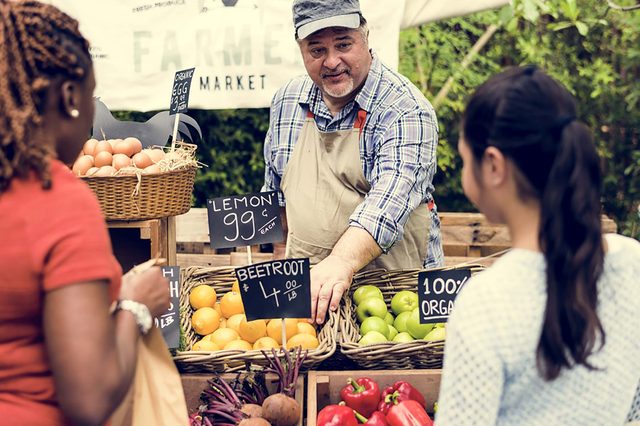
The farmer says their food is organic but the label is too expensive
Yes, gaining certification can take effort, but don’t believe the expense argument for failing to apply for organic certification. “I find that particular argument to be very frustrating,” Don Franczyk, executive director of Baystate Organic Certifiers, told Organic Life. “The smallest growers are exempt from certification under the National Organic Program.” And growers who bring in between $5,001 and $20,000 a year typically pay just $100 a year for the certification, thanks to federally-subsidized programs.
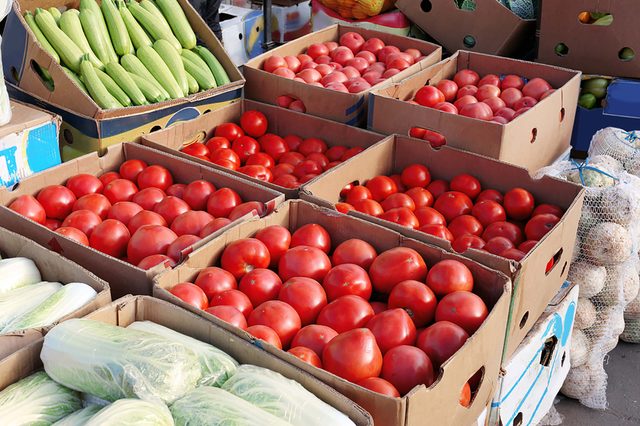
You spot a commercial carton
It’s easy to get caught up the hustle and bustle of farmers markets, but if you hone in on each stand, there are certain thing you should never see, like a vendor removing produce from a commercial carton that doesn’t have any link to the farm.
This does not mean they can’t reuse containers, such as a banana box filled with lemons, but if you see a box with a big brand name on it—and the produce matches the label—start asking questions.